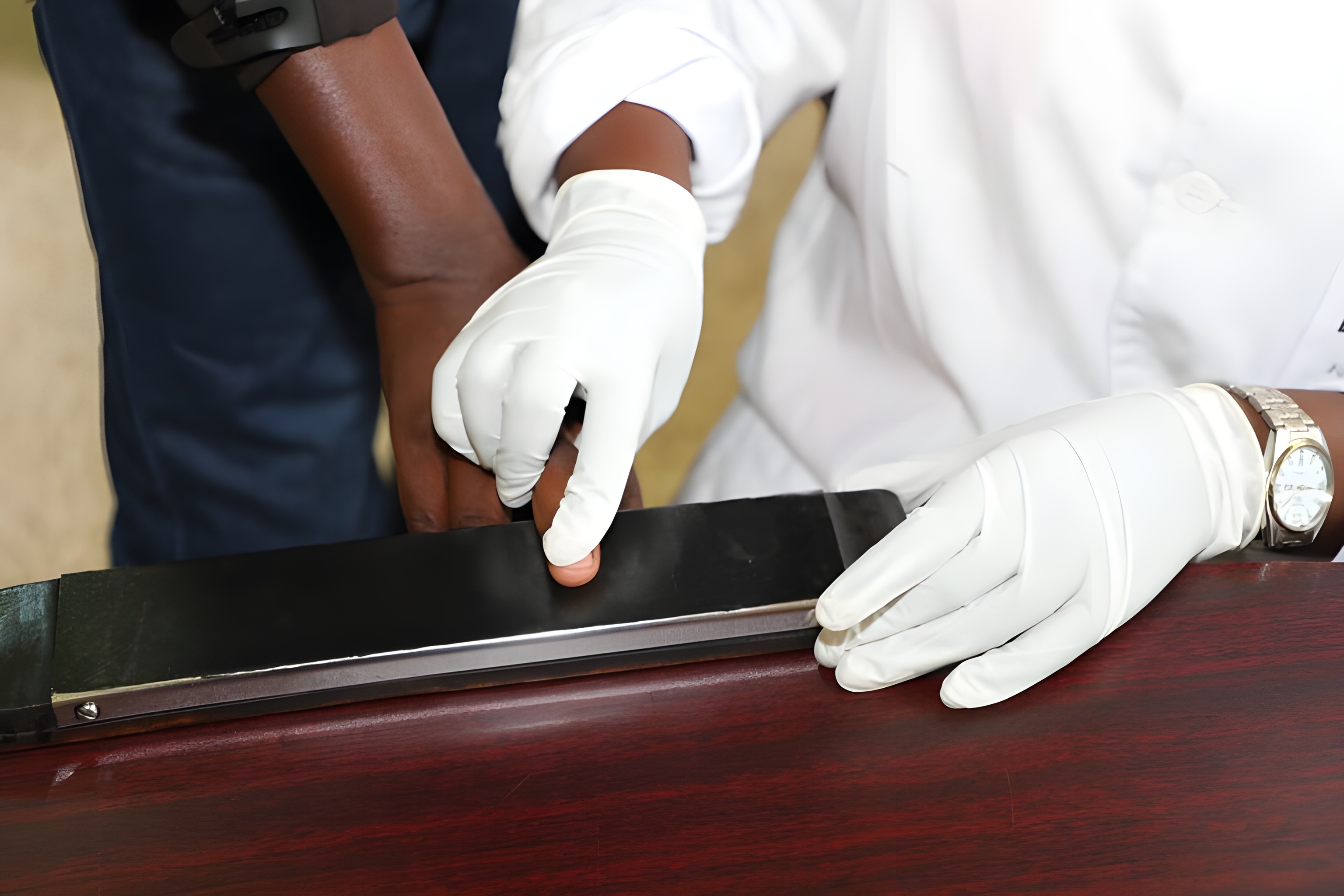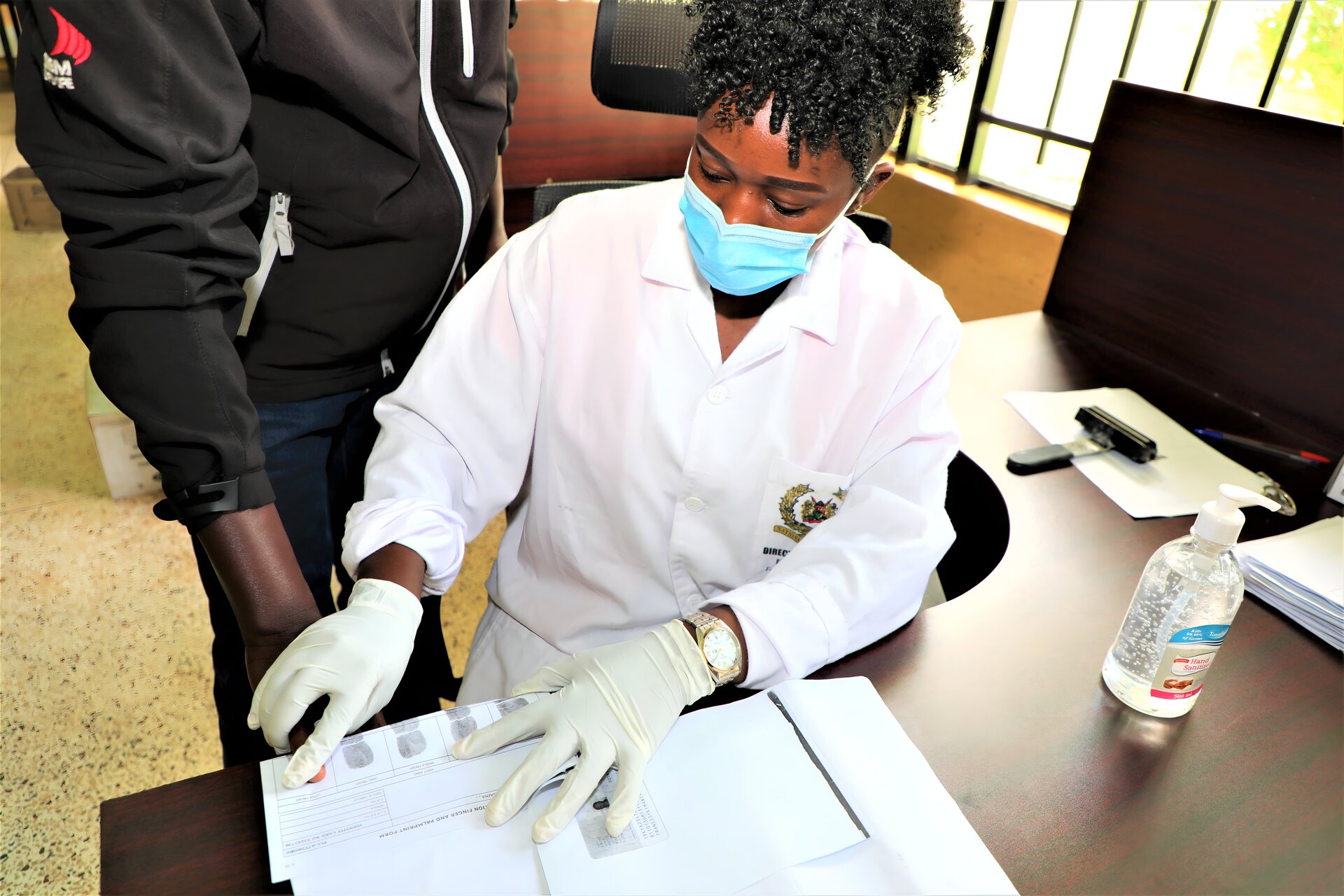Forensic Fingerprint Identification Bureau (FFIB)
MISSION STATEMENT:
To provide high quality, scientific crime investigation support and truth underpinned by the international forensic fingerprint investigation standards.
VISION STATEMENT:
To be the successful forensic fingerprint science laboratory within the forensic sciences with emphasis on continual linkage of the crime, the crime scene and the criminal
VALUES:
To be a dynamic professional body which promotes truth, integrity, credibility and specialist fingerprint expertise as the “Centre of excellence”.
1909: The bureau was established alongside the construction of Mathare deport
1926: Became operational by the colonial Government under the British East African Police which was headed by Mr. Burgess, who had been seconded by Captain Tylor and who laid its foundation block. Tylor in cooperated matters about Police records, classification, search and identification of suspected criminals as well as accused persons. This section started its operations and was able to positively identify individuals with previous convictions.
1952: During the state of emergency in Kenya, a new legislation under the state of emergency was enacted requiring all members of the Kikuyu, Embu and Meru tribes residing in Nairobi and certain areas to possess special passbooks in which the applicants were ink-printed their fingerprints, which were filed in the Bureau. During such time, there was an increase of Fingerprints records of mainly suspects and positively identified cases, which included those of suspected escapees from lawful custody and wanted offenders.
Present: The Bureau has grown bigger with several units under it. It has over two (2) million records of both suspects and accused persons
FFIB draws its mandate from:
- Cap.80 Sec.48 Evidence Act;
- Cap.75 Sec.142 (2) Criminal Procedure Code, Laws of Kenya,
- Cap.84 Sec. 55 of the National Police Service Act No of 2011 and
- Cap.15 Appendix 15(a) of the SSO.
This section undertakes the following activities in carrying out its core functions:
- Custody and maintenance of Criminal Records
- Applying Forensic Fingerprint Science Technology to analyze Palm, Finger, Foot and Toe impressions for the purpose of:
- Issuance of Police Clearance Certificate
- Issuance of Certificate of Previous Convictions
- Linking the criminal with crime scene impressions
- Identifying of unknown dead bodies
- Provide forensic fingerprint expert evidence in courts of law.
- Data compilation and report writing on crime (Statistics)
- Compilation, Publication and Distribution of the National Police Gazette
- Establishing and maintenance of pathology files












